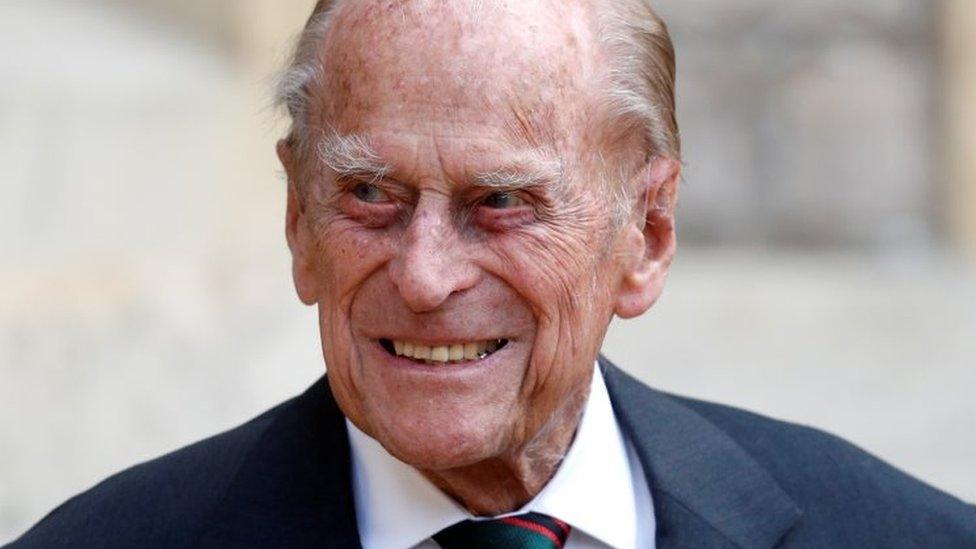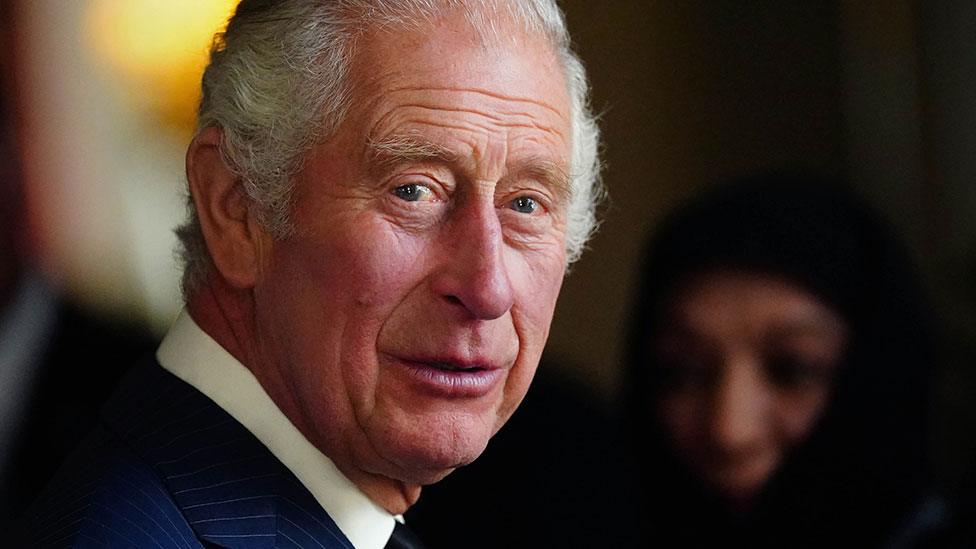Prince Philip: West of England pays tribute to Duke of Edinburgh
- Published
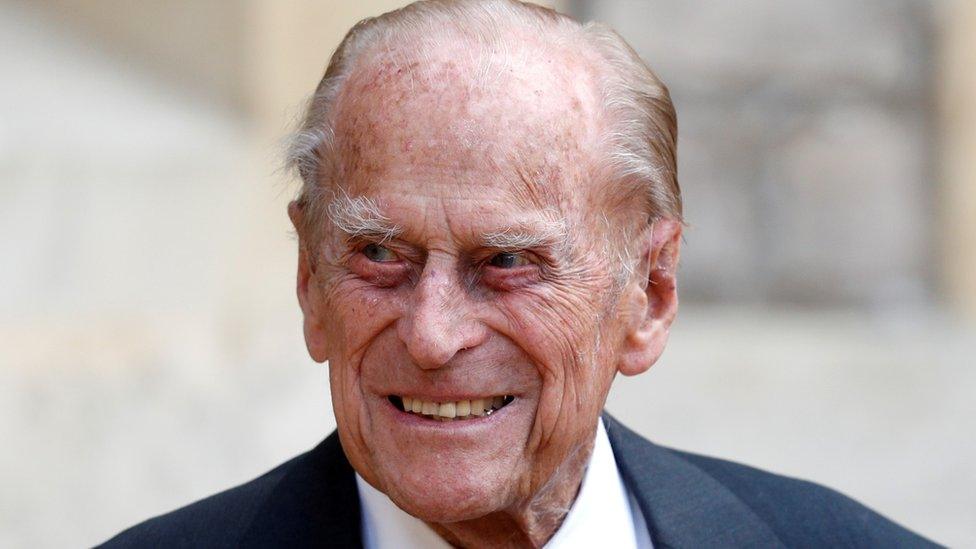
Prince Philip was the longest-serving royal consort in British history
Tributes are being paid from across the West Country to The Duke of Edinburgh who has died at the age of 99.
Buckingham Palace announced that Prince Philip had "passed away peacefully" earlier at Windsor Castle .
He married Queen Elizabeth II in 1947 and was the longest-serving consort of any British monarch.
A former prince of Denmark and Greece, Prince Philip was born in Corfu in 1921 and served in the British Royal Navy in World War II.
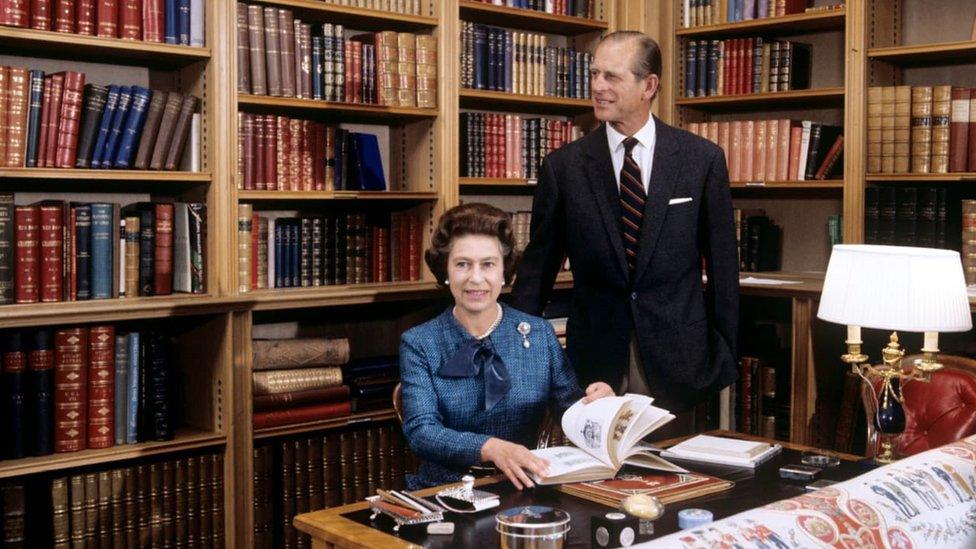
The Queen and Prince Philip were married in 1947, five years before she became the ruling monarch
Prince Philip was treated in hospital between 16 February and 16 March after being admitted to King Edward VII's hospital in central London because he was feeling unwell.
'Most glamorous man'
He later underwent a successful procedure for a pre-existing heart condition before returning to Windsor Castle.
Author Jilly Cooper, who lives at Bisley near Stroud in Gloucestershire, said: "What I loved about him is he made no secret of his boredom and what a job, to have to walk three yards behind someone for all your life.
"The public loved him and he was the most glamorous man in the world. Everyone was in love with him when he married the Queen. We all were."
The duke visited the West Country on many occasions alongside The Queen.
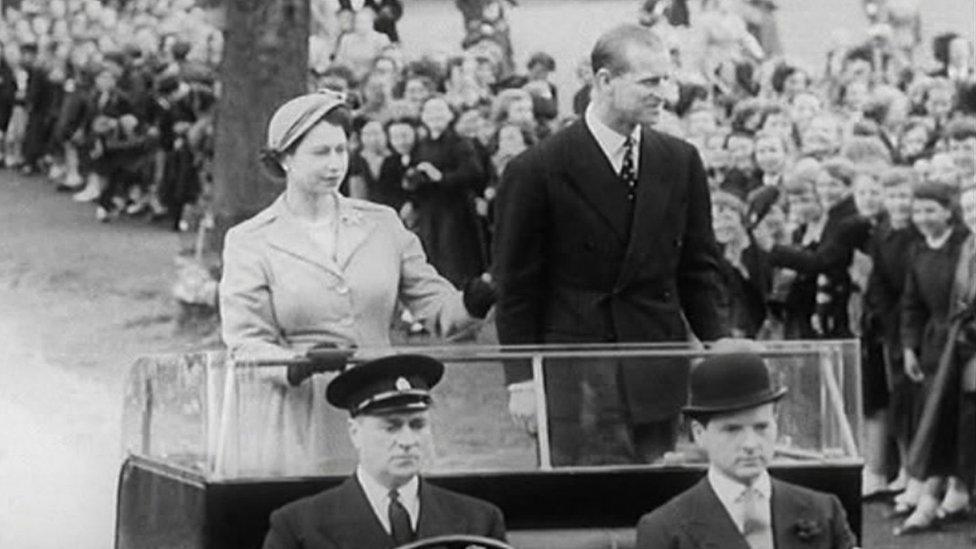
The Queen and Duke of Edinburgh paid a visit to Gloucester in 1955
Among his earliest visits was in 1955 when the royal couple travelled to Gloucester to mark the 800th anniversary of the granting of the city's first Royal Charter by Henry II in 1155.
Mayor Howard Gibson received them on behalf of the city and they visited Gloucestershire Royal Hospital and the Gloucester Railway Carriage and Wagon Company, where it was reported that "as usual the duke took an interest in the men who do the work".
Crowds lined the streets as they approached the Guildhall to attend a civic reception and a gold paper knife was presented to the Queen as a symbol of the city's continued loyalty to the Crown.
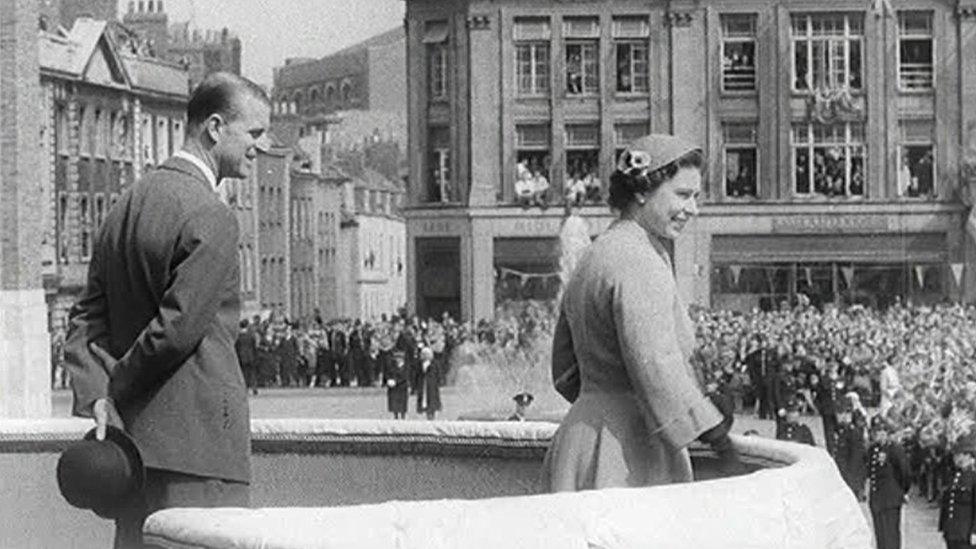
A large crowd greeted the Royals on a visit to Bristol in 1956 when they opened the new council house
The following year he was back in the West Country alongside the Queen to open Bristol's new council house and the couple waved to a large, cheering crowd from the building's balcony.
They also visited Bath in the same trip, being received at the Guildhall by the mayor Alfred Norman Dix, before moving on to Chew Valley where the Queen unveiled a plaque to inaugurate the new reservoir which cost £1.75m to build.
Royal author Penny Junor said Prince Philip was "such a support."
"He was just always there, I'm sure always with a wry remark or something to lift her spirits to give her someone to talk to.
"It's lonely being a monarch, it's lonely being up there on your own. He was a remarkable consort," she said.
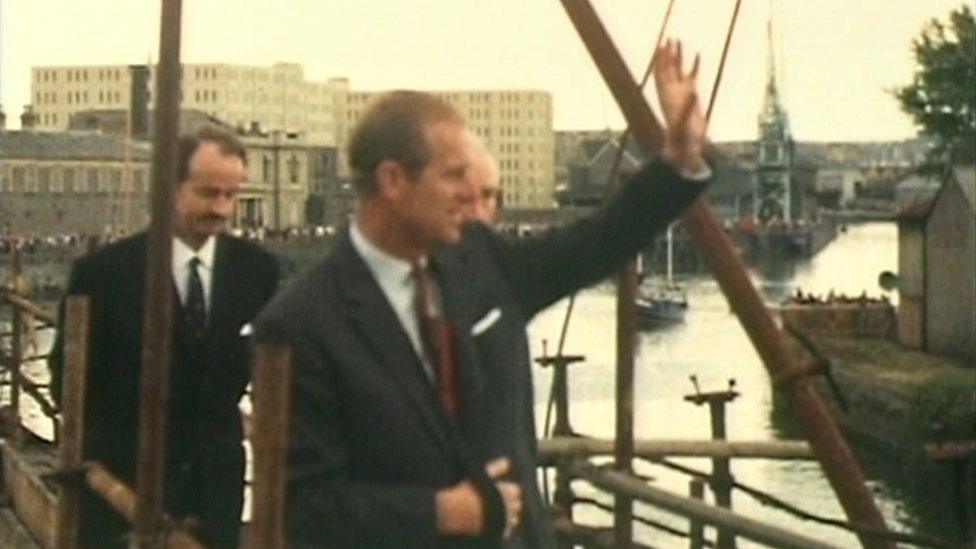
Prince Philip was photographed sailing into Bristol on the SS Great Britain in 1970
The Bishop of Salisbury, Nicholas Holtam said: "The Duke of Edinburgh lived a long and distinguished life, much of it in the public eye and much of it of public service.
"He had an enquiring and creative mind and made major contributions in a number of areas including religion and the environment."
Churches across the diocese will remember the duke in prayer, particularly on Sunday, he added.
In keeping with the duke's naval background, he sailed into Bristol on the rusty hull of the SS Great Britain in 1970 and returned to see Brunel's ship when it had been restored to its former glory in February 2005.
His return visit was part of a trip alongside the Queen who visited Knowle West and The Park community centre before they both met up at the University of Bristol.
The end of the visit was a particularly memorable one for a little girl who Prince Philip lifted over a barrier so that she could hand flowers to the Queen as they prepared to depart from Bristol Temple Meads railway station.
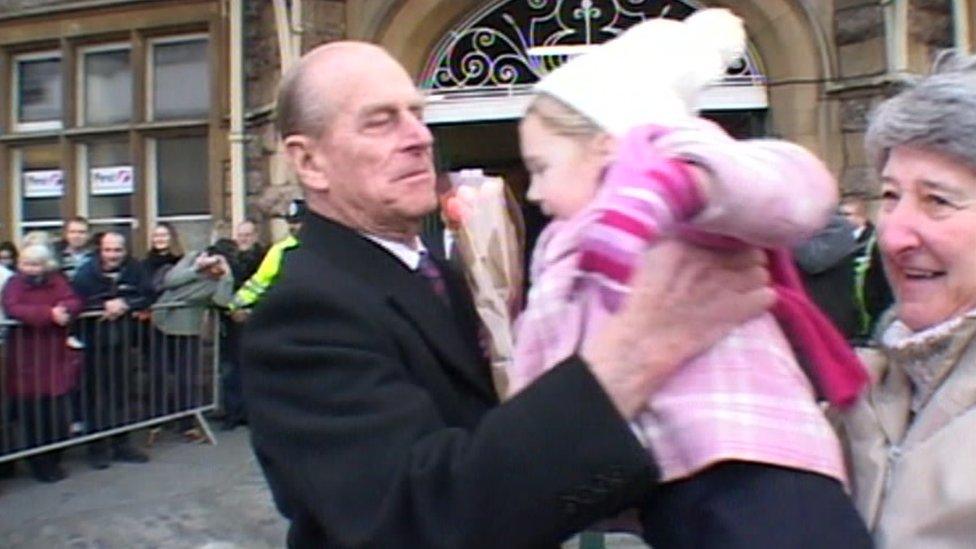
Prince Philip lifts a young girl over a barrier to allow her to give a bunch of flowers to the Queen in Bristol in 2005
The duke paid another visit to Bristol in 1997 when he was asked to launch the replica ship of the Matthew, to which he gave his royal seal of approval.
Maj Gen Matt Holmes of the Royal Marines said Prince Philip was always a huge supporter and was proud of his association with the forces.
"We're naturally saddened by his loss but he left a vivid mark in the memory of many marines and certainly those who he met.
"He was very fond of his association, a huge supporter of our activities, he would often visit around the globe including 40 Commando in Malta when they were stationed there and he was also very interested in the individuals as well."
His support of the forces saw him honoured in March 2016 when the RAF Lyneham site in Wiltshire was renamed The Prince Philip Barracks.
The duke unveiled a plaque to mark the occasion and spent time chatting to soldiers and their families.
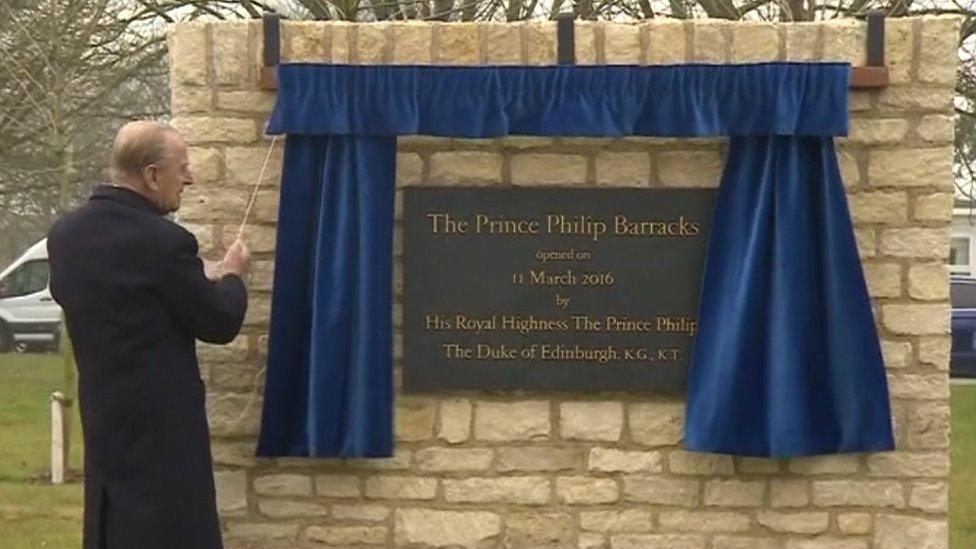
“You’re going to see the world’s most experienced plaque unveiler at work,” said the duke as he renamed the MoD site in Lyneham
More recently he visited the West Country as part of the Queen's Diamond Jubilee celebrations in May 2012.
In Sherborne the couple was greeted by children enjoying a Mad Hatter's tea party in the grounds of the Abbey and visited a a food fair showing off the best of Dorset.
The trip continued the following day with a visit to Yeovil.
After arriving at Pen Mill Station they met two new police horses and a group of school children.
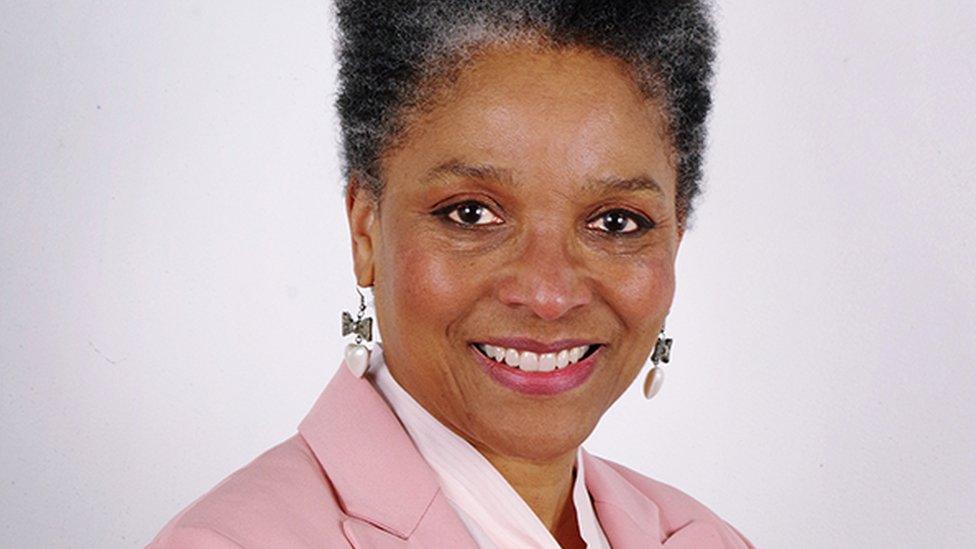
Peaches Golding, Lord Lieutenant of Bristol, has fond memories of her meetings with the Duke of Edinburgh
Bristol's Lord Lieutenant Peaches Golding recalled an amusing tale from one of his visits to Bristol after a British team had won the Gordon Bennett Cup - a prestigious race within the hot air balloon world.
"Prince Philip came for a dinner at the council house. Of course the Lord Mayor had this wonderful chain on, so he walked up and he thumped on the chest of the Lord Mayor and said 'is that real?'
"I think for a man who had a career in the military in the way that he did, he put that all aside and has supported the Queen in her role almost at the expense of any career he could have developed.
"He was a lovely man and he had such a sense of humour, he was absolutely wonderful," she said.

Follow BBC West on Facebook, external, Twitter, external and Instagram, external. Send your story ideas to: bristol@bbc.co.uk , external
- Published1 March 2021
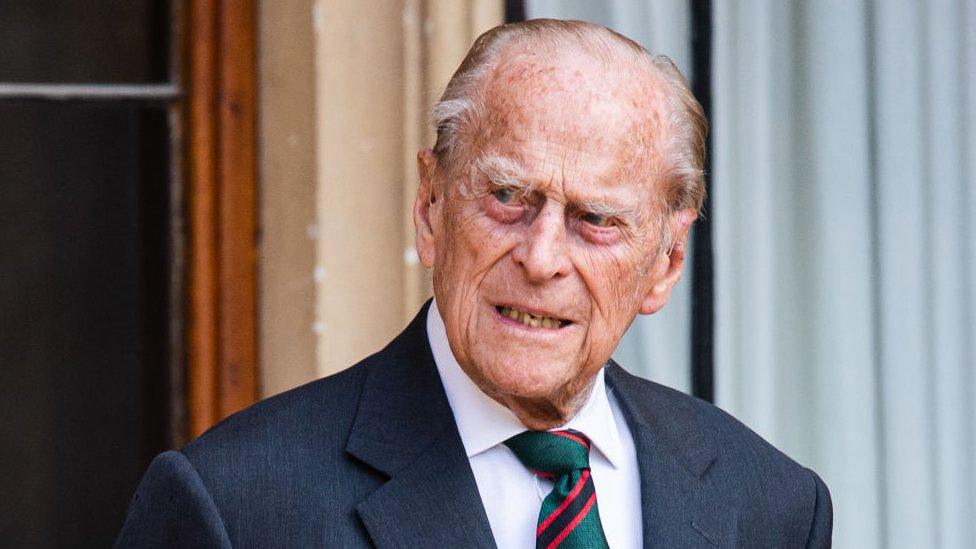
- Published20 November 2020
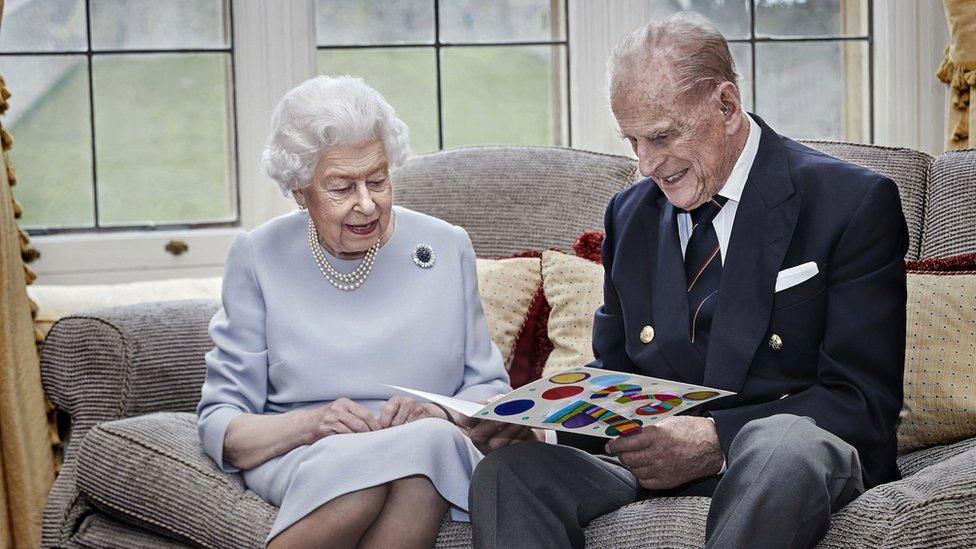
- Published5 August 2020
